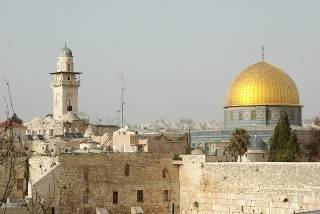Holidays in Israel

No country in the world is as influenced by Judaism as Israel. For this reason, there is a whole series of holidays here that are not celebrated in this form anywhere else. Only the first and last days of Pesach and Sukkot are officially recognized as national holidays. Since the Jewish calendar differs from the Gregorian calendar, all holidays are flexible.
Overview
Purim – Flexible
Pesach (Passover) – Flexible
Independence Day (Yom Ha'atzmaut) – Flexible
Pentecost (Shavuot) – Flexible
Jewish New Year (Rosh ha-Shanah) – Flexible
Day of Atonement (Yom Kippur) – Flexible
Fest of Tabernacles (Sukkot) – Flexible
Simchat Torah – Flexible
Fest of Lights (Hanukkah) – Flexible
Worth knowing about selected holidays
Purim
On the holiday of Purim, Israelis celebrate the salvation of many Jews by Queen Esther. The high Persian government official Haman had decided to kill all Persian Jews. The day on which the genocide was to take place was chosen by lot (Purim). Queen Esther, however, prayed and fasted and finally interceded for the Jews with her husband, the Persian king. He arranged for their salvation. On this day there is a boisterous celebration in Israel. There is a feast and wine flows in abundance. A typical feast dish is crepe, meat wrapped in dough and served in a soup.
Pesach
It is one of the most important festivals of the Jews. Pesach commemorates the Jewish people’s exodus from Egypt and thus their liberation from slavery. Pesach lasts for seven days, the orthodox Jews even celebrate for eight days.
During Pesach, strict dietary rules apply. For example, nothing leavened may be consumed. Any leavened food still in the house before the feast is eaten, sold or given away. In preparation for the feast, there is always a big house cleaning. Everything is polished to a shine. A service marks the beginning of the festival. According to Jewish tradition, this takes place in the evening. Afterwards, the family gathers for an extensive feast.
Independence Day
On May 14, 1948, the Israeli state declared itself independent. This was the birth of the Israeli nation.
Day of Atonement
Whoever fasts, does no work, and observes certain rituals on this day will be forgiven of all their sins. A term we are familiar with that originated in connection with the Day of Atonement is the scapegoat. With two goats, it was decided which one would be sacrificed to cleanse the temple and which one, laden with the sins of the faithful, would be sent into the wilderness.
Importantly for the tourist, public life comes to an almost complete standstill on this day. Cars are hardly to be seen, restaurants are closed and even official business has to be postponed.
Fest of Tabernacles
This is the equivalent of our harvest festival. After the harvest is in, there is extensive celebration. The term Feast of Tabernacles, probably goes back to the shelters that were built in the fields to protect against the piercing sun.










